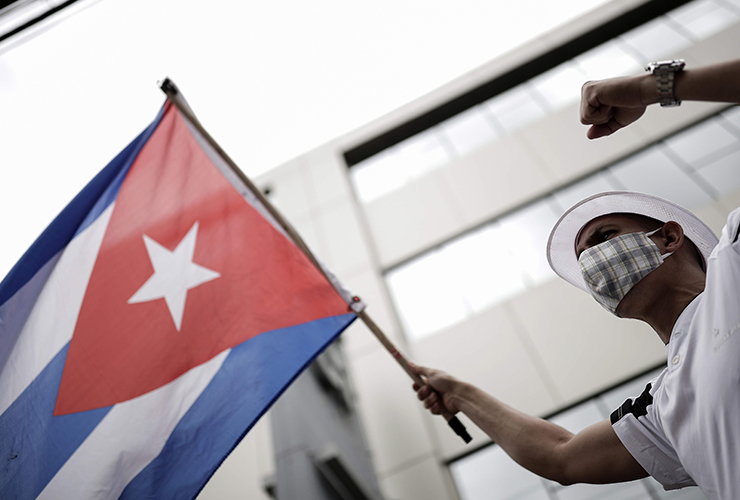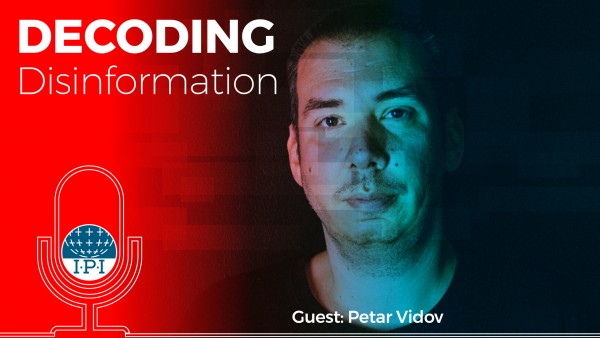The IPI Global Network condemns the crackdown on media and independent reporters covering the anti-government protests that have drawn thousands of Cubans to the streets since last Sunday, July 11.
Cuban authorities have reacted with detentions, including of journalists. Although it is difficult to assess accurately the number of people detained since the government has throttled internet services and limited communications on the island, local news outlets like 14yMedio estimate that 5.000 people have been detained, including 120 journalists and activists.
This includes the case of Camila Acosta, Cuba correspondent for the Spanish daily ABC, who was detained on Monday, July 12, while she was uploading photographs of the protests to social media. Police officers raided her home hours later that day and seized all her equipment, including her personal computer.
Acosta remains in custody at the Cerro police station and will be charged with “crimes against national security”, according to ABC, one of Spain’s leading newspapers.
Spain’s foreign minister, José Manuel Albares, has called on Cuba to immediately release Acosta and to respect the right to right of peaceful demonstrators.
España defiende el derecho a manifestarse libre y pacíficamente y pide a las autoridades cubanas que lo respeten. Defendemos los derechos humanos sin condiciones. Requerimos la liberación inmediata de @CamilaAcostaCu.
— José Manuel Albares (@jmalbares) July 13, 2021
Besides Acosta, it is believed that around 20 journalists have been arrested while covering the protests, including Ramón Espinosa, a photographer for The Associated Press and journalists Iris Mariño in Camagüey and Orelvis Cabrera in Matanzas.
“The Cuban regime must respect the fundamental right of journalists to report on the ongoing demonstrations”, IPI Deputy Director Scott Griffen said. “We call on the authorities to release all detained journalists and stop the harassment and repression of independent media operating in the country. Providing information to the public is not a crime.”
“We were so hungry that we ended up eating our own fear”
The protests originated in two cities southeast of Havana, San Antonio de los Baños and Palma Soriano and stem from widespread public fatigue with increasing COVID-19 infections, food shortages, and constant disruption of electrical power in some of most impoverished regions in the country.
According to the internationally renowned journalist Yoani Sánchez, co-founder of the news portal 14yMedio and an IPI World Press Freedom Hero, the independent media have been directly targeted amid the authorities’ crackdown on the protests. “Many journalists remain in their homes as police surround their houses, some have been detained and others’ whereabout remain unknown”.
“Right now, independent news outlets are under pressure to stop them from reporting on what’s happening,” Sánchez said in her podcast, Ventana 14. “The regime wants to ‘kidnapp’ the narrative of what is really going on the streets of Cuba”.
Ventana 14 de hoy: 📢✊🏽⛓ Siguen las protestas, aunque la difusión es complicada por el corte de internet ⚰️🤕🩸 Muertos, heridos y desaparecidos: el saldo de la represión ✂️📰🔗 La prensa independiente en la diana ⏳⏰❓¿Qué va a pasar a partir de ahora? https://t.co/jewRtOGlso
— Yoani Sánchez 🇨🇺 (@yoanisanchez) July 13, 2021
Sánchez confirms that the demonstrations continued yesterday in several locations, though the dissemination of the images has been seriously limited following the internet shutdown and intentional bandwitdh reduction. “We are doing our best to keep the public informed, however, the international community should renew its call on the Cuban government to respect our work and allow us continue reporting in the coming weeks”.
“We live under a regime that is allergic to the freedom of the press and it will probably escalate the repression against journalists and news outlets,” Sánchez claimed. “However, now that the spark has been lit, the people won’t surrender the streets. We were so hungry that we ended up eating our own fear to protest,” she concluded.



